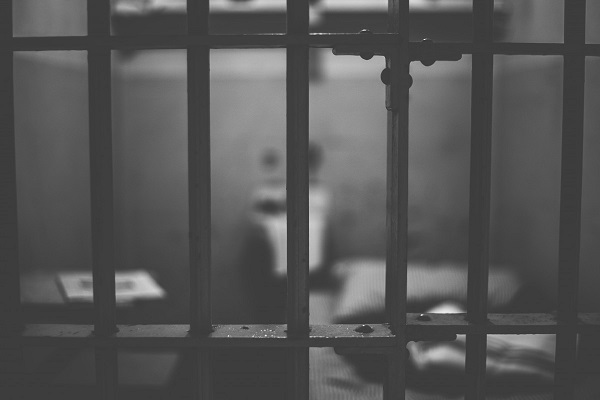
–>
July 8, 2022
Recently, a Connecticut teen, reportedly a gang member with an extensive rap sheet, was arrested in connection with 18 shootings. For years this young man has been out on the streets, committing crimes, getting arrested, and repeatedly being released. It’s time to crack down on crime, but in many leftist districts, politicians and prosecutors are having none of it.
‘); googletag.cmd.push(function () { googletag.display(‘div-gpt-ad-1609268089992-0’); }); }
There is an abnormal amount of crime in the U.S., though progressives continue to deny it. The most convincing proof is the murder rate: there are 2.6 as many homicides in the U.S. as in Canada (2019 figures), five times as many as in Germany, more than sixteen times more than in Japan. Violent crime in the U.S. is very real, and it is out of control.
Politicians like Biden and Harris talk about bail reform, over-representation of minorities in prison, and “root causes” of everything. But the plain truth is that there are violent criminals out there who are entirely lacking in conscience and feeling. The only solution is to apprehend these criminals and send them to prison for a long time — and to make prison a place where they will not want to return after they are released.
Prison conditions should be harsh, not the country club of decent meals, clean cells, elective health care, and cable TV enjoyed by most prisoners today. There is nothing “cruel and unusual” about providing spartan, unappealing conditions for those who prey on society and make life intolerable for many innocent persons.
‘); googletag.cmd.push(function () { googletag.display(‘div-gpt-ad-1609270365559-0’); }); }
This is the approach of the Japanese prison system, in which inmates are assigned simple cells with tatami mats for sleeping and sitting during the day and in which simple meals consist of rice, barley, fish, and vegetables — healthy fare, but no picnic. Prisoners are responsible for cleaning, cooking, and maintaining the premises.
According to one authority, Japanese prisons “are known to be very strict, in order to rehabilitate inmates and ensure they never commit a crime again.” These conditions include being allowed to speak only during “free time,” which is limited, and only in quiet voices. “Entertainment” consists of an hour or so of simple radio or TV, but work takes up most of the day.
Apparently, this strict prison system works. Twenty nineteen figures show only 48,400 prisoners in a country with a population of 120 million, and the recidivism rate is estimated at approximately 50%. U.S. prisons contain a total of 2.4 million, with recidivism running as high as 85%, depending on the state. Given the reputation of prisons in Japan as places of true punishment, few Japanese commit crimes to begin with, and those who do spend time in a Japanese prison do not want to return.
The upshot of the Japanese justice system is that innocent citizens are spared the harm of violent crime. In 2018, there were only 334 murders in all of Japan, a country with 128 million people. In the U.S., there were 16,214.
Japan enjoys a low crime rate in part because of its vigilant policing, strict prosecutors (with a 99% conviction rate), and spartan prison conditions. Crimes are truly punished, and as a result, there are low crime rates. Something is terribly wrong with the American justice system, and progressives’ support of even greater leniency is making matters worse.
One shouldn’t have to say it, but prison should be a place of punishment. Yet, according to one source, prison meals aren’t that bad. “Typical lunch for prison may include pasta, vegetable salad, ham or sausage and loaf of bread. Half a cup of vegetables, or a serving of fruit such as apple or banana, is served with it.” Better than what many on the outside are eating.
‘); googletag.cmd.push(function () { googletag.display(‘div-gpt-ad-1609268078422-0’); }); } if (publir_show_ads) { document.write(“
Another inmate who blogs describes her New York prison as containing “a library, beauty shop … a medical wing, a rec yard and a gym.” While most inmates work, “[n]ot all inmates worked full time jobs. Some would go to G.E.D class, or take a break for classes like thinking errors, parenting and anger management.” Thinking errors?! I imagine so, but I don’t think a class on “thinking errors” will deter a hardened criminal from future crimes.
I am not suggesting cruelty or neglect or lack of medical attention, but there is nothing wrong with depriving criminals of the comforts that most of us on the outside take for granted.
At present, a misguided incarceration policy attempts to rehabilitate repeat offenders by giving them a pleasant stay in comfortable surroundings, complete with counseling, job training, and even university courses. That effort is failing, with 83% of prisoners arrested within nine years of their release, and that’s only counting those who do get arrested. Since there is a high likelihood that prisoners will continue to commit crimes after their release, the obvious solution, especially for violent criminals, is to keep them off the streets for a long time.
The first obligation of government is to protect its citizens, whether from foreign attack or internal violence. At present, the Biden administration is doing neither, and leftists at the state and local levels are doing just as badly. It’s time for some new thinking on crime.
First is to affirm that anyone who commits a serious crime must serve time without the likelihood of early release.
Second is that criminals must actually be punished. Sitting in a comfortable cell with three meals a day and unlimited recreation is not punishment.
And when they have completed their full sentence and are released, criminals should know that the commission of another crime will lead to a much longer sentence.
New thinking on crime will result in less crime, and crime reduction should be the first purpose of domestic policy. Every crime involves at least one victim, and today’s criminals are running wild. Gangs enter exclusive stores and haul off bag-loads of goods. California has decriminalized theft of less than $900, so stores are closing down to avoid being wiped out. And this kind of burglary often involves assault of store personnel.
Worse yet are carjackings, home invasions, and senseless murders of innocent bystanders. Police are spread thin, especially in large districts such as Los Angeles County, and the national “clearance rate” of murders has fallen below 50% (2020 figures). So even if one commits a serious crime, there is little chance of a long prison sentence. Only 18% of property crimes are solved, with low conviction rates and light sentences, if any. Half of Americans will see their homes burglarized at some point.
This is not the “life, liberty, and pursuit of happiness” promised by our Founders. Citizens have an absolute right to live free of crime, but progressive government is not delivering on this promise.
Crime of all sorts is mounting, and weak liberal policies are the cause of it. We need more funding for police, prosecutors who actually prosecute, and prisons that actually punish. And though it should not be necessary to say it, those who are convicted of serious crimes should serve long sentences in prisons to which they do not wish to return.
Jeffrey Folks is the author of many books and articles on American culture including Heartland of the Imagination (2011).

Image via Pxhere.
<!– if(page_width_onload <= 479) { document.write("
“); googletag.cmd.push(function() { googletag.display(‘div-gpt-ad-1345489840937-4’); }); } –> If you experience technical problems, please write to [email protected]
FOLLOW US ON
<!–
–>
<!– _qoptions={ qacct:”p-9bKF-NgTuSFM6″ }; ![]() –> <!—-> <!– var addthis_share = { email_template: “new_template” } –>
–> <!—-> <!– var addthis_share = { email_template: “new_template” } –>





